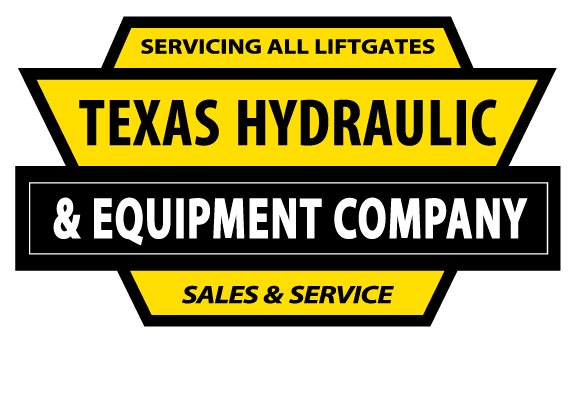Hydraulic Pump Troubleshooting Guide
HOW TO FIX HYDRAULIC PUMPs
A single malfunctioning liftgate hydraulic pump can stall work for an extended period of time. We know how important it is to know about the gear you rely on, and to keep your business running smoothly, we've compiled this helping guide for hydraulic pump troubleshooting. Though it never hurts to have a backup of essential equipment on hand, it's much more sustainable to be able to fix what's already there – or even to fix the malfunctioning unit after it's been replaced. Either way, you'll need to know how to troubleshoot a liftgate hydraulic pump if yours breaks down right there at a time-sensitive job site.
Are Power Units & Pump and Motor Assemblies Different?
The vast majority of the time, the terms "power unit" and "motor assembly" are used synonymously in equipment manuals. These terms amount to the hydraulic pump found on most liftgates, which is comprised of several key components:
Pump
Reservoir
Motor
Valves
Solenoid
While many industries increasingly make it more expensive to repair parts than to replace them, we'll cover the most common problems for hydraulic pump troubleshooting to keep your gear operating well without costly new parts.
Air Leaking Into the System?
When air gets into the system, the liftgate pump will operate more slowly, erratically, or not at all. It can also cause foaming oil. These issues point to the nature of the problem, as follows:
Inoperable system: The pump suction line could be leaking and should be replaced if tightening its clamps doesn't have any effect.
Erratic or slow operation: If an air leak causes this, it will be at the suction side, where the hose must be refitted or replaced.
Foaming oil: A leak on the suction side can also bring air into the fuel mixture, damaging the motor. If replacing the suction line doesn't entirely solve this, the component seals likely also need to be replaced.
Water Leaking Into the System?
Water from the reservoir or pump can leak, leaving a visible clue of the most apparent problem. If the seal seems fine, it could be as simple as tightening the parts surrounding the leak. Look to the fluid seal around the piston for more complicated issues, which undergo extreme pressure and temperatures. Like any gasket, it's inevitable that they will fail, given enough time. If there are signs of a deteriorating fluid seal, you'll need to service the pump:
Drain the pump, removing it as necessary
Remove the piston and the failed seal
Replace with a new fluid seal
Replace your hydraulic fluid – use a minimally abrasive one for minimizing wear in the future
Even an unseated seal could indicate the need to replace it because it likely displaced itself for a reason (even if not obvious). It could be warped or bent, and it's probably necessary to replace it.
We also recommend cleaning your filters and regularly checking the hydraulic fluid levels. Most of the time, the seal is the only part needing replacement – but letting hydraulic fluid run dry and/or the filters become dirty can lead to accumulated metal flakes that could destroy more than the seal.
Pump Noise Has Recently Increased?
When the hydraulic pump becomes noticeably louder, the issue could be one or a combination of the following:
Oil issues (low oil, incorrect oil, suction hose leak creating foamy oil)
A restricted suction line and/or inlet screen must be cleaned or replaced
The inlet's pipe fitting may be the incorrect type
Pump Delivering Too Little or No Flow?
Unreliable liftgate operation is most commonly caused by flow issues, especially if it functions intermittently and variably. Aside from apparent leaking – in both the air hoses and hydraulic pump – a worn or dirty pump could be the culprit. If your hydraulic pump is old and well-used, this may be it. While cleaning it, check the valves, cylinders, and surrounding components for signs of excessive wear, especially metal gauges that could indicate a more serious issue.
When to Take The Vehicle To A Professional
If your hydraulic pump troubleshooting efforts turn up internal metal damage or even just many multiple failed parts at the same time, we recommend having the entire unit inspected by a professional. Unfortunately, this could lead to needing to simply replace the entire unit, but not all the time. It could be just a matter of a rare part and not some impossibility of repair, which is especially prevalent as manufacturers constantly change their designs and decide against manufacturing replacement parts. This makes having a trusted hydraulic specialist all the more important so that you can keep your equipment maintained for as long as possible and maintain independence from OEM part obsolescence.
Texas Hydraulic & Equipment – Your Community Hydraulic Pump Experts
Texas Hydraulic & Equipment can help diagnose what’s wrong with your hydraulic pump and repair it for you. Regular maintenance and repair of hydraulic systems are essential for maintaining precise pressure control and consistent flow rates. We're proud to do our part in keeping our local businesses running their best in our hometown Texas communities like Dallas, Desoto, and Mesquite. When your heavily relied-on hydraulic parts become unreliable, you can count on us to help you repair or replace them and even help you troubleshoot hydraulic pump issues on your own. For liftgate hydraulic pump issues, or any pump-and-motor assembly needs, don't hesitate to give us a call at 214-748-7551 or email, or visit us!
Image Credit: Denys Yelmanov/Shutterstock

